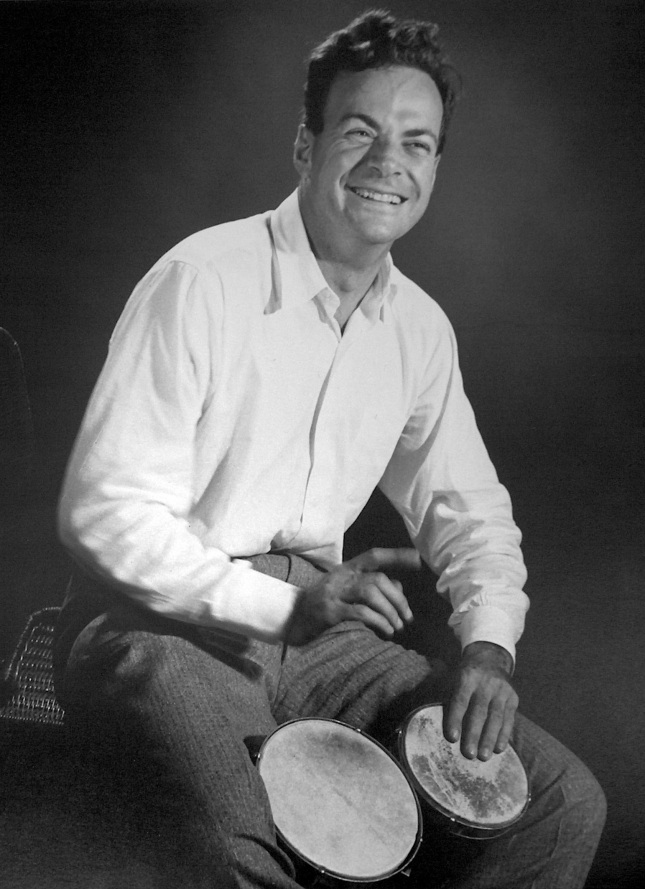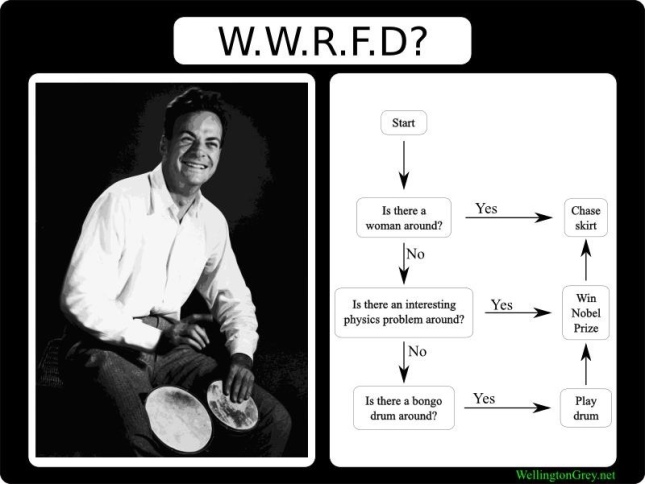Today (May 11, 2013) is the birthday of this great man right here, Richard Feynman. He was quite an interesting character, and he knew what being a scientist was all about. He didn’t take it as a body of knowledge full of terms to memorize (in fact, he despised that definition) instead, he thought of it as a way of thinking and being human. This lead him to new discoveries, as well as being one of the most effective teachers ever. He also appreciated the arts, having created realistic drawings of people when he was not busy solving for Quantum Electro Dynamics. Happy Birthday, Richard “Dick” Feynman! 🙂
Some Facts (About Me)
If any of you wonder, no, I am not a Professional Physicist, I am a student studying Economics. So you may ask why I do a blog like this. Well, I just enjoy it 😉 Check my “What is Science” post for this btw. 🙂
On Poetry
My Poetry teacher once said that, “[t]he ultimate purpose of language is to mimic the human experience with all it’s complexities,” (Pulan 2012). For that, we have poetry. What it does is provide an objective description of situations, instead of subjective ones (“Show, don’t tell”), which is why poets utilize he figures of speech to give concrete images in our head to follow and re-create the experience, and hopefully the emotions.
Sorta Writing a book
So I’ll just mention this: I am kind of writing a book. It won’t be about my discoveries or whatnot, but rather a simplified version of Hawking’s “The Grand Design” (and more concepts included). 🙂
What is Science?
Dictionaries define Science as a branch of knowledge dealing with realities through observation and experimentation. However, for many especially Carl Sagan and Richard Feynman, it is not merely a branch of knowledge, for that sort of knowledge can be updated (meaning that whatever we discover is not cold hard fact/truth because we can make better models e.g. The solar system and gravity). Instead, Science is more of a way of thinking we use to discover. As children, we are all scientists, having unquenchable thirsts for knowledge and discovery (we ask question, we explore, and the like at a very young age). Why do we do it? Because it is who we are. It would be ingrained in our very Humanity and Nature. I would conclude this on a famous Feynman quote (on Physics): “Physics is like sex. Sure may have some practical results, but that’s not why we do it.”


